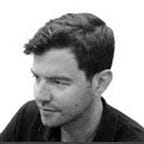Peter Thiel and Trump
I’ve been following Peter Thiel for years. I read Zero to One, possibly the finest book on startups and tech ever written. In recent months, much has been said and written about Thiel’s enthusiastic support for candidate, and now president-elect, Donald Trump.
Thiel is a measured thinker, calculative and reserved. Trump is impulsive and the type introverted Thiel probably encountered in high school: brash and aggressive. It’s unlikely the two would have been friends.
Thiel is a libertarian whereas Trump often sounds like a protectionist who seeks “good deals”, seemingly at least, in opposition the invisible hand of market forces. Trump wants to control the outcome whereas Thiel wants to maximize liberty and free capitalism from constraints.
So why is Peter Thiel, so different in temperament and political philosophy, supporting Donald Trump?
In a Wall Street Journal essay, a prelude to Zero to One, Thiel chastised companies for being competitive. Instead, he urges companies to strive to build monopolies and to dominate their respective industries.
“By “monopoly,” I mean the kind of company that is so good at what it does that no other firm can offer a close substitute. Google is a good example of a company that went from 0 to 1: It hasn’t competed in search since the early 2000s, when it definitively distanced itself from Microsoft and Yahoo!”
As the founder of PayPal and an early investor in Facebook, Thiel has a history of discovering new industries and consequently establishing companies that exist to win.
Trump, while not an innovator or a visionary of Thiel’s caliber, is arguably in it to win, whether real estate, alcohol or food products. Trump’s appetite for success seems insatiable. The drive to dominate is arguably one common trait between the two. Trump wants America to start winning again. For Thiel this unapologetic demand is a welcome disposition in a sea of professional politicians campaigning too much and governing too little.*
Peter Thiel has argued that except for computers, we’ve been experiencing an innovation deficit in the past forty years, and the rate of technological advancements has decreased compared to the first half of the 20th century. Trump’s complaint “we don’t make things anymore”, fits nicely into Thiel’s complaint of current stagnation.
It’s likely that Thiel believes that only unbridled capitalism can save innovation. In his 2009 Cato essay, Thiel made the argument that the expansion of democracy is threatening capitalism.
“Since 1920, the vast increase in welfare beneficiaries and the extension of the franchise to women — two constituencies that are notoriously tough for libertarians — have rendered the notion of “capitalist democracy” into an oxymoron.”
You could replace the word libertarians with the word Trump and end up with a reasonable argument.
Thiel concludes his essay with a warning that contains a wish for a messianic figure to save capitalism from the many threats it faces.
“The fate of our world may depend on the effort of a single person who builds or propagates the machinery of freedom that makes the world safe for capitalism.”
By this, Thiel seems to suggest that politics must be disrupted by a forceful figure who does not care about existing social or political boundaries or norms. Thiel is telling his fellow libertarians to look for solutions such as commercialization of space, settling oceans and the creation of a new currency to escape the shackles of social democracy.
Seven years later it seems that Thiel is settling for Trump. For Thiel, Trump is perhaps the man to reverse the current trend of political correctness and safe spaces. For Thiel, a Trump presidency comes with a promise of a very different tomorrow, which seems to be enough to satisfy his quest for political and social disruption.
*A book by Professor Anthony King who passed away this week. He was one of my lecturers at University of Essex.
Sign up to my newsletter to get more commentary on tech and politics.
Watch: Peter Thiel on the Global Economy, the State of Our Technology, and Artificial Intelligence
